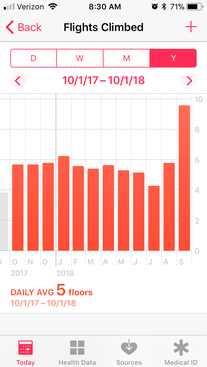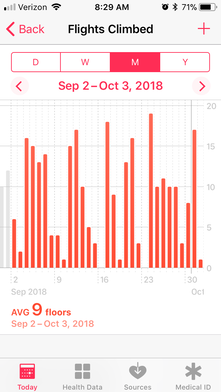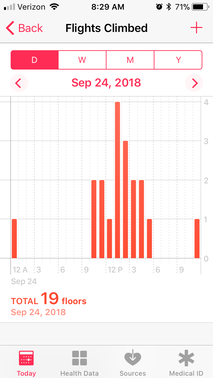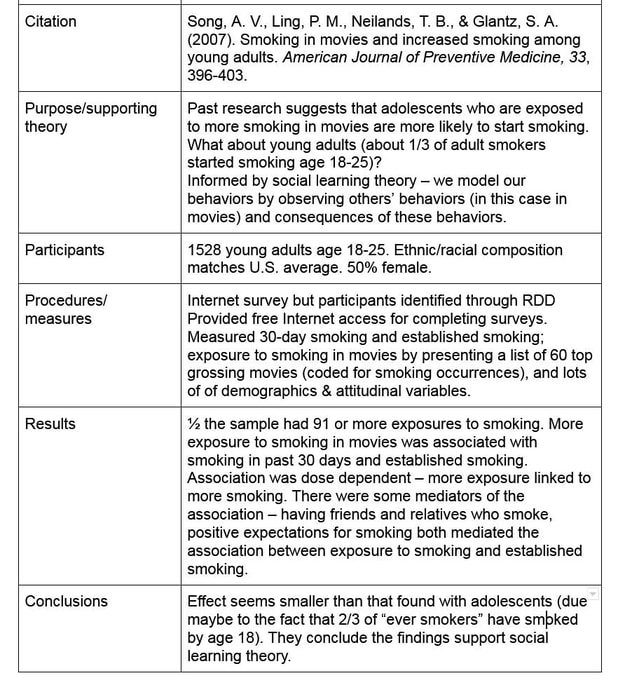Discussing this article in the seminar made me realize that at least so far (and it’s been a much longer so far than six years post-high school), I cannot really identify turning points in my life, particularly in the career realm. My How-I-got-here narrative is much more serendipity and process of elimination than Aha! moments or turning points. I’m okay with that path at this point, and actually, I think it’s important to share that path with others. Sharing my own journey to this point with high school students, college students, and grad students can help them to understand that we do not all choose our career based on a critical, life altering moment in childhood, or our lifelong passion since we pretended to be doctors as toddlers. Some of us almost fall into our career path, and that’s okay.
I went to college without a major. My father wanted me to be an engineer, so I went to a liberal arts university that did not have an engineering program. My first semester, I took all general education courses – humanities, history, economics, and psychology. I eliminated, three of them, so my second semester I took sociology, political science, fine arts, and another psychology course. For four semesters, I took three courses and a psychology course, until we were required to declare a major, and I declared psychology. So essentially I chose my major through process of elimination.
Close to graduation, I decided that I wanted a job in market research, where I could use my research and psychology skills. I spent 2 ½ months the summer after I graduated traveling back and forth to the Brandeis Career Services Center to print my resume and cover letters on fancy paper and apply for market research and marketing jobs. And as time went on, a bunch of other jobs. One of those jobs was as an administrative assistant on a research project at Simmons College School of Social Work. The PI called me to say that the project would soon have a research assistant position available, and that my record seemed more suited for such a position. And so I began a two-year position as a research assistant on a project studying adolescent mental health. My initial reasoning was that I would use the research skills I gained in the job to then be more marketable for market research positions.
I really can’t think of a turning point during that first year, but I enjoyed the position, and at some point decided that I wanted to continue in psych research and eventually become a professor. I knew I didn’t want to be a clinician, even though some of the topics that interested me often overlapped with clinical psych faculty’s research programs. So I decided to apply to developmental and social psych programs. I guess that’s the closest I’ve had to a turning point. I actually had trouble writing my grad school application statement because it felt as though there should be a description of a turning point, and I really didn’t have one. I applied to 13 programs, was admitted to five, relatively easily narrowed it down to two, and ended up choosing UCLA over Virginia based on several small factors, mostly from ruling out some things about Virginia.
In grad school I had some interest in parent-adolescent relationships, and ended up working with Marian Sigman on a project on parent-child conversations about emotionally charged topics, including sexuality. That’s essentially how I ended up having a career studying sexuality during adolescence and the transition to adulthood – because my interest in parent-adolescent relationships led me to a project that included communication about sex.
My large, pre-tenure NIH-funded study on gender roles and sexual behavior? Early in my faculty career, NIH had an RFA on Gender and HIV Risk and I thought, I could pull together a proposal on that. I did, with help of awesome collaborators and students, and it was funded on the first try. My move to UConn and position as department head? Someone emailed me and asked me to apply, and… I did. And here I am. There was (I assure you) no lifelong dream to become a chair or move up the administrative ladder.
It is not only my career that has led to serendipity in my life. Take my bridesmaids, given that bridesmaids often represent our closest friends from all periods of life (if, like me, you get married after 30). In addition to my sisters (serendipity in the extreme?), I met my best friend in college because she moved to my dorm floor the second week of classes; we met in the bathroom when I was watering some birthday flowers. I met my best friend in grad school (and long term conference buddy) because we worked in the same lab. And I met my best friend as a faculty member at Penn State at an event scheduled by the New Faculty Club in my first months there, where the youngest people in the room found each other. In fact, many people I met that night continue to be my close friends, even though I have moved away. And, I met my husband when, during my first year as faculty, he interviewed for a position in the same department and a few months later, became my colleague.
You may be wondering why I am sharing all of these life details. I am kind of wondering the same thing, honestly. But I think the reason is that a prevailing narrative in our society around career development is to “find what you’re passionate about.” Or, “tell me what inspired you to be a professor” or “when did you know you wanted to be a professor?” (I get asked these latter two frequently by students who are interviewing me as part of a First Year Seminar course requirement). For me, though, there wasn’t a turning point or a lifelong passion. Do I love doing research on adolescent sexuality development? Absolutely. Do I like my job as HDFS department head at UConn? More days than not. Do I think I have the most amazing friends? Can’t imagine life without them. Am I passionate about many of the things in my life? Definitely. But my journey to this point was often serendipitous, and I want others to know that there is nothing wrong with that.
“Career serendipity first appeared on Eva Lefkowitz’s blog on November 27, 2018.”





 RSS Feed
RSS Feed
